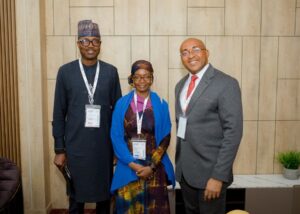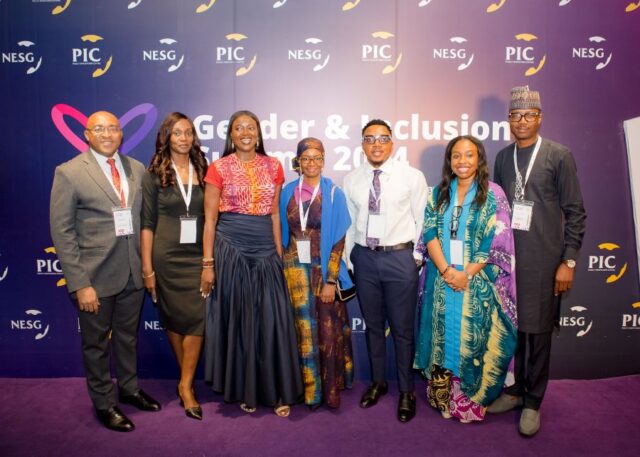…Only 22% of women in Nigeria are economically empowered, and they are more likely to be if they have access to and use financial services.
THUR SEPT 05 2024-theGBJournal| The highlights of the EFInA Women’s Economic Empowerment report was launched Wednesday in Abuja, at the third edition of the Gender and Inclusion Summit hosted annually by the Policy Innovation Centre (PIC) at the Nigerian Economic Summit Group (NESG).
The report underscored the second plenary by EFInA and FSD Network; tagged – Unpacking Access to Essential Tools and Services for Women’s Economic Empowerment – Collaborating for Sustainable Outcomes.

The EFInA WEE report utilises data from the 2023 Access to Financial Services in Nigeria (A2F 2023) Survey, Nigeria’s primary source of financial inclusion data, to better understand potential linkages between female financial inclusion and women’s economic empowerment in Nigeria.
The results show that of Nigeria’s estimated female adult population of 56.3 million people, only 22%, or 12.5 women, can be classified as being economically empowered. Education, digital, and financial literacy are the most significant drivers of empowerment, followed by household and group agency, regarding women’s autonomy to join and influence decision-making in social groups and the agency to do productive work and own assets.
In assessing the pathway from financial inclusion to WEE, we find savings stand out with the greatest odds. Women who save –formally or informally – are six times more likely to be economically empowered than those who do not. The use of formal credit also doubles the likelihood of economic empowerment, whereas informal credit has a negligible impact.

Women who actively use their accounts are more likely to be economically empowered than those who do not. Using Digital Financial Services increases the chances of empowerment and, more so, other formal banking channels, highlighting the growing role of digital platforms in financial inclusion.
Commenting on the report’s findings while speaking at the launch event, EFInA Gender Centre of Excellence Lead, Emezino Afiegbe said: “This report clearly identifies important linkages between financial inclusion and women’s economic empowerment in Nigeria, while also identifying the key factors influencing women’s formal financial inclusion.
By establishing the importance of financial inclusion in economic empowerment we can focus resources and investments on the enabling factors that will ultimately accelerate empowerment for all Nigerian women.”
Also speaking on the panel Dr. Yetunde Fatogun, Social Development Consultant at the World Bank said: “For women’s economic empowerment, it’s crucial to recognise that this is not a short-term endeavour. Sustainable progress requires the involvement of multiple sectors in implementation.
To truly empower women, we must address critical issues, including the significant influence of culture and the pivotal role of institutions—traditional, religious, and family. This report is both timely and essential, as it sheds light on these multifaceted challenges and offers insights into how various sectors can collaborate to drive meaningful and lasting change for women in Nigeria”.
Aisha Hadejia, Partner at Sahel Consulting Agriculture and Nutrition Limited, said: “Information accessibility remains a major hurdle, both in terms of design and delivery. Only 30% of women farmers have internet access, reflecting a significant digital divide.
Additionally, mistrust in formal financial institutions is driving many women towards informal financial systems. Addressing these challenges requires data-driven solutions, such as those outlined in the A2F Women Economic Empowerment Report.”
EFInA, through the Gender Center of Excellence, is championing collaborative efforts with partners to drive significant progress in WEE by mainstreaming financial inclusion into sub-national economic policies and increasing financial and digital literacy, particularly for rural women.
EFInA’s commitment extends to deepening financial inclusion, supporting income generation, and promoting savings behavior, all of which are essential for enhancing financial independence.
Additionally, empowering women in decision-making and addressing vulnerabilities through social protection will further strengthen women’s roles in their households and communities.
X-@theGBJournal|Facebook-the Government and Business Journal|email:gbj@govbusinessjournal.com|govandbusinessj@gmail.com










